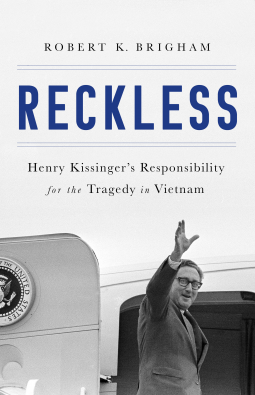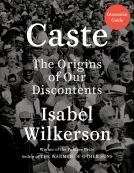
Reckless
Henry Kissinger and the Tragedy of Vietnam
by Robert K. Brigham
This title was previously available on NetGalley and is now archived.
Send NetGalley books directly to your Kindle or Kindle app
1
To read on a Kindle or Kindle app, please add kindle@netgalley.com as an approved email address to receive files in your Amazon account. Click here for step-by-step instructions.
2
Also find your Kindle email address within your Amazon account, and enter it here.
Pub Date Sep 04 2018 | Archive Date Sep 04 2018
Perseus Books, PublicAffairs | PublicAffairs
Talking about this book? Use #Reckless #NetGalley. More hashtag tips!
Description
The American war in Vietnam was concluded in 1973 after eight years of fighting, bloodshed, and loss. Yet the terms of the truce that ended the war were effectively identical to what had been offered to the Nixon administration four years earlier. Those four years cost America and Vietnam thousands of lives and billions of dollars, and they were the direct result of the supposed master plan of the most important voice in American foreign policy: Henry Kissinger.
Using newly available archival material from the Nixon Presidential Library, Kissinger's personal papers, and material from the archives in Vietnam, Robert K. Brigham punctures the myth of Kissinger as an infallible mastermind. Instead, he constructs a portrait of a rash, opportunistic, and suggestible politician. It was personal political rivalries, the domestic political climate, and strategic confusion that drove Kissinger's actions. There was no great master plan or Bismarckian theory that supported how the US continued the war or conducted peace negotiations. Its length was doubled for nothing but the ego and poor judgment of a single figure.
This distant tragedy, perpetuated by Kissinger's actions, forever changed both countries. Now, perhaps for the first time, we can see the full scale of that tragedy and the machinations that fed it.
Available Editions
| EDITION | Other Format |
| ISBN | 9781610397025 |
| PRICE | $37.00 (USD) |
| PAGES | 320 |
Links
Featured Reviews
 Joseph S, Reviewer
Joseph S, Reviewer
Reckless: Henry Kissinger's Responsibility for the Tragedy in Vietnam by Robert K. Brigham is a study of Kissinger's role in the Vietnam peace process. Brigham, Shirley Ecker Boskey Professor of History and International Relations, joined the Vassar faculty in 1994. He is a specialist on the history of US foreign policy, particularly the Vietnam War.
For students of international relations, Kissinger is a powerhouse. He is often credited with creating the modern Realist Theory that opposed the Wilsonian Idealist position. Kissinger is also responsible for volumes of work on historical foreign policy. American policy in most situations has been driven by the realist model. A notable exception is the first Gulf War where a where a large coalition worked together extending beyond traditional allies. The inconclusive results of that conflict seemed to further instill the realist theory as America's policy.
Kissinger is also known for his tough stance against North Vietnam and the relentless bombings. What is new in Brigham's book is a clearer role of Kissinger's involvement with the Vietnam peace process. Brigham shows a Kissinger that is unsure, untrusting, and secretive. He blocks others including Secretary of State Rogers and Secretary of Defense Laird. Both men had experience and the people under them to help settle the peace. Kissinger explained to Oriana Fallaci that he was a lone cowboy and that was admired in America. Kissinger believed only he knew what it took to end the war and worked against anyone who he disagreed with or would steal his spot.
Forty-five years after the direct involvement of US troops in the war, new information is coming to light. Kissinger has written volumes of information on the war and his role. His works secure his place a statesman, but there is more too it. Brigham makes the comment:
Like the internet, Kissinger provides huge amounts of apparent information, not all of it reliable. He's a conspiratorially minded theorist, and he often wanders far from the facts.
Reckless shows the costs and dangers of a "lone cowboy" running foreign policy. Although Kissinger thought back channels would provide a faster solution, our country had the channels for open communication and the bureaucracy that is not driven by ambition or personal emotions. Kissinger was very much like Nixon needing to be in charge and untrusting of almost everyone. He believed that his intelligence and America's military might could provide all of America's solutions in Vietnam. However, he lacked the understanding that the Vietnamese had been fighting outside powers since 1887 and were not about to give up. Reckless tells the story of hubris and failure in contrast to the polished history written the subject himself.
 Jenny B, Reviewer
Jenny B, Reviewer
Contrary to current popular thought, there are unassailable facts. Unfortunately, these facts tell us little and when strung together in a list are dull and boring. Thus the need for historians: those who could provide color and context to our facts.
Reckless by Robert K. Brigham examines Henry Kissinger's management of the Vietnam War. Kissinger's War for Peace was an effort to combine military strategy with diplomacy to extract the US from the ongoing Asian war.
Using newly released information from the Nixon library, National Archives in Ho Chi Minh City, U.S. National Security Council files and Kissinger papers at Yale, Brigham examines Kissingers peace plan in light of it's accomplishments and failures. The verdict is not favorable for Kissinger.
The only thing to remain constant throughout is Kissinger's belief in his view as the only correct one. Kennedy, Johnson, the State Department, the Secretary of Defense, Watergate, Congress and Richard Nixon were discounted and controlled.
Reckless was a well written, well researched volume. It is however a difficult read - there is no hero, there is no happy ending..
Thank you to NetGalley for an advance copy of this book. My reviews are unbiased and completely my own. #NetGalley #Reckless





